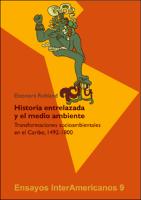¿Historia entrelazada y el medio ambiente?
Transformaciones socioambientales en el Caribe, 1492-1800
Author(s)
Rohland, Eleonora
Contributor(s)
Raussert, Wilfried (editor)
Kaltmeier, Olaf (editor)
Language
SpanishAbstract
The objective of entangled history and the environment is to introduce climatic and other environmental factors into the postcolonial debate on the unequal power relations between the metropolis and its colonies. Dealing with both environment and empire, as well as unequal (colonial) power relations, has so far largely occurred in separate fields, environmental history, and postcolonial studies. The book attempts to bring the two strands together and to combine the conceptual perspective of intertwined history and comparative practices in order to highlight both material and constructed (or discursive) aspects of the environment as a factor in the formation of unequal (colonial) power relations. Two case studies are conducted through this conceptual lens. The first offers a new perspective on Christopher Columbus' first contact with the Arawak in Hispaniola in 1492. The second examines how climate became an argument for enslaving Africans and displacing them to sugar plantations in the Caribbean.
Keywords
Environmental history; postcolonial studies; climate; the Caribbean; entangled historyDOI
10.4119/unibi/2943285ISBN
9783946507574, 9783946507581Publisher
Kipu-VerlagPublisher website
https://www.uni-bielefeld.de/einrichtungen/cias/publikationen/kipu/Publication date and place
Bielefeld, 2020Series
Ensayos InterAmericanos, 9Classification
History
Colonialism and imperialism
The environment


 Download
Download